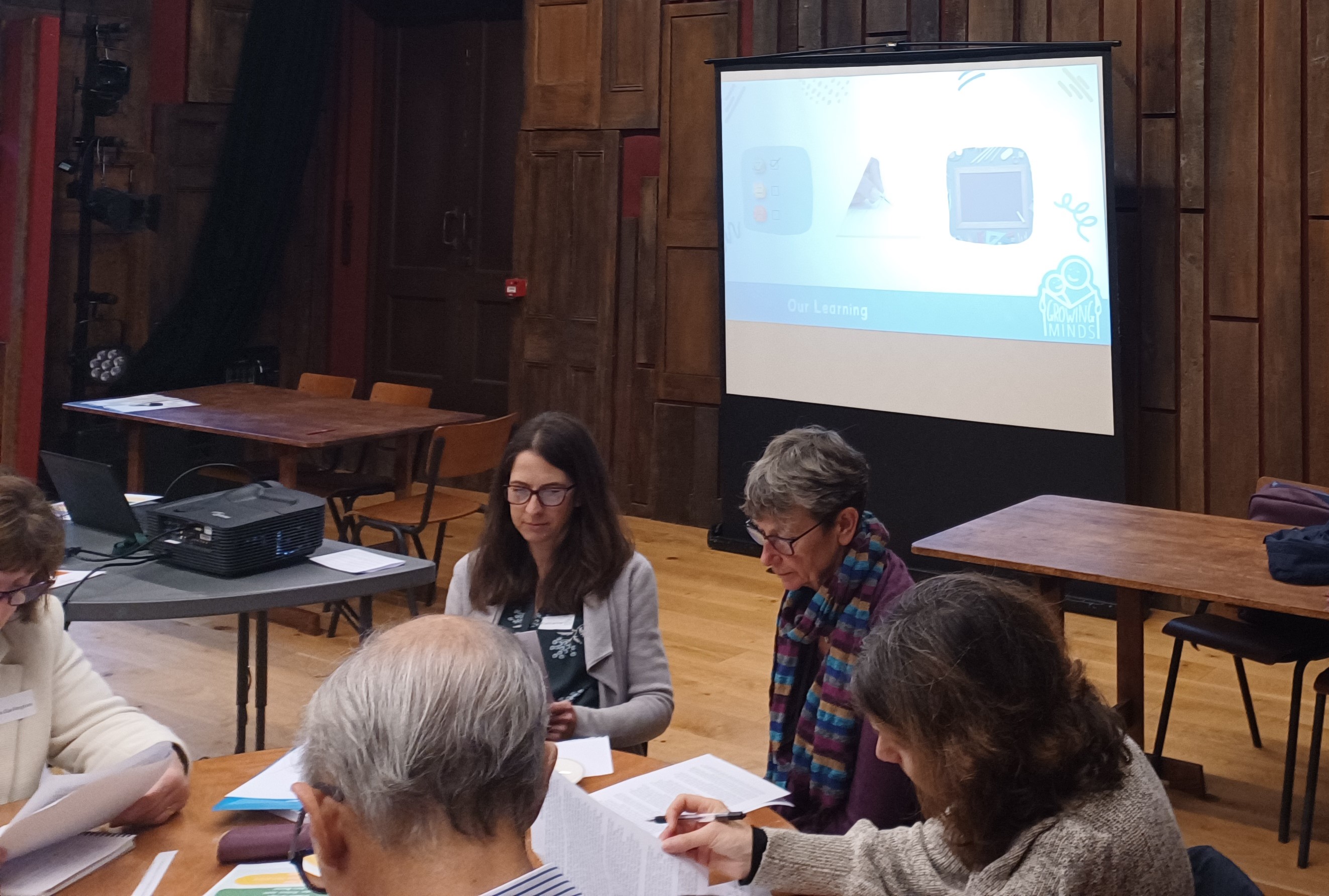Blog: Growing Minds - lessons learned and getting involved
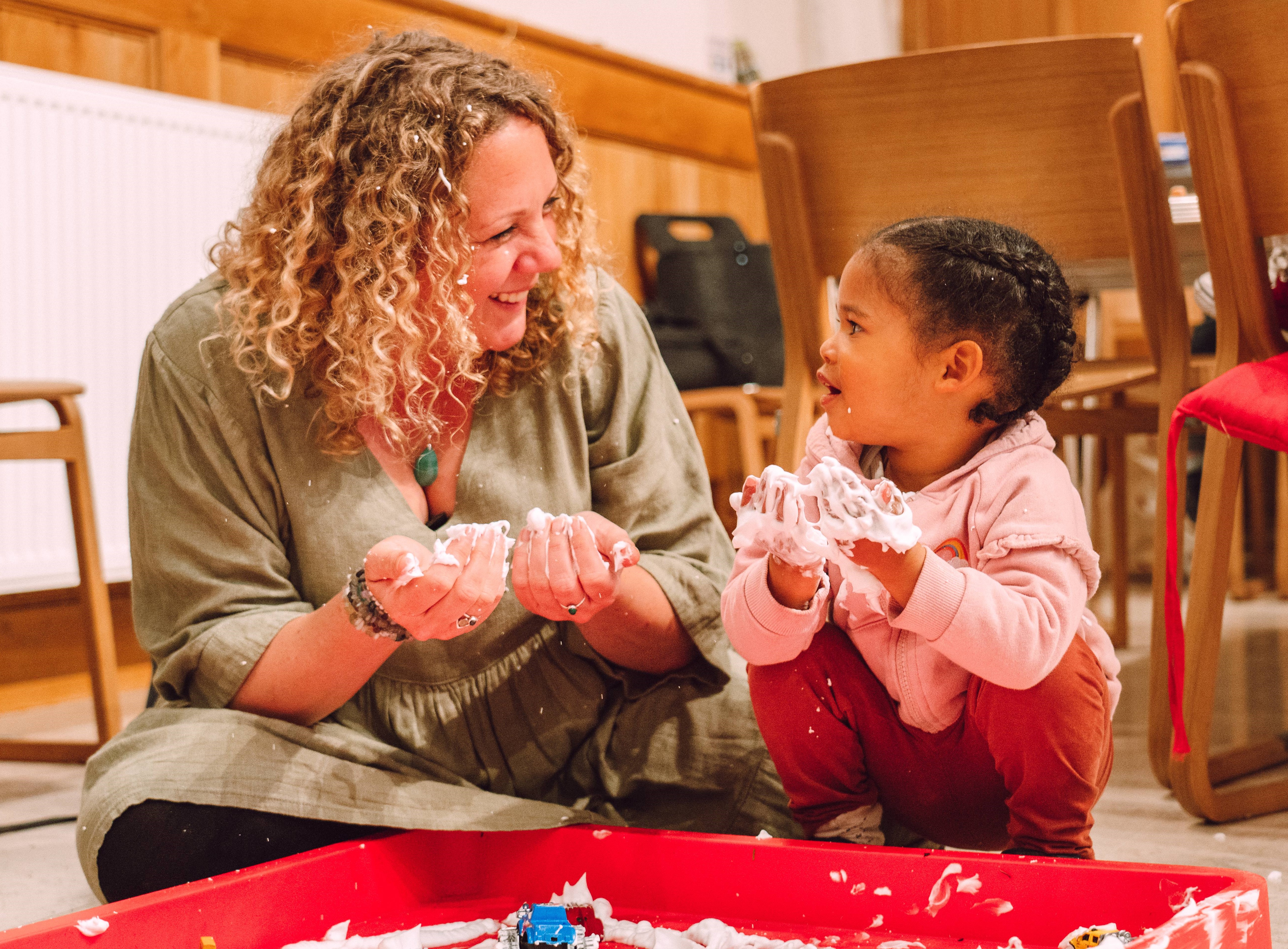
Our third Growing Minds Learning Event in November enabled us to reflect on the last few months - what we did, what changed within our communities, and what we learned - helping us to plan for the year ahead.
Growing Minds is a collaborative, community project that supports and improves young children’s development, school readiness and life chances. We do this by bringing together experienced organisations, local parents and carers, and tried-and-tested interventions. It is led by a partnership of third sector organisations - Peeple, Home-Start Oxford and the Berin Centre – working together in the Littlemore and Berinsfield areas of Oxford and south Oxfordshire.
We really appreciate the positive and thoughtful contributions from everyone who attended, and the generosity of our hosts The Story Museum in Oxford.
Read on – and if you’d like to commission, fund, signpost, find out more, or attend any of our Growing Minds local provision for families - then do get in touch: becky.young@peeple.org.uk.
Here are some of our successes and challenges:
We’re proud of our new 5-minute Growing Minds video, which provides an overview of the project for families and professionals. It captures the voices of partners, practitioners and parents, reflecting on the impact that Growing Minds has had on their lives. Do watch it if you have a few minutes!
Expanding our reach across the communities:
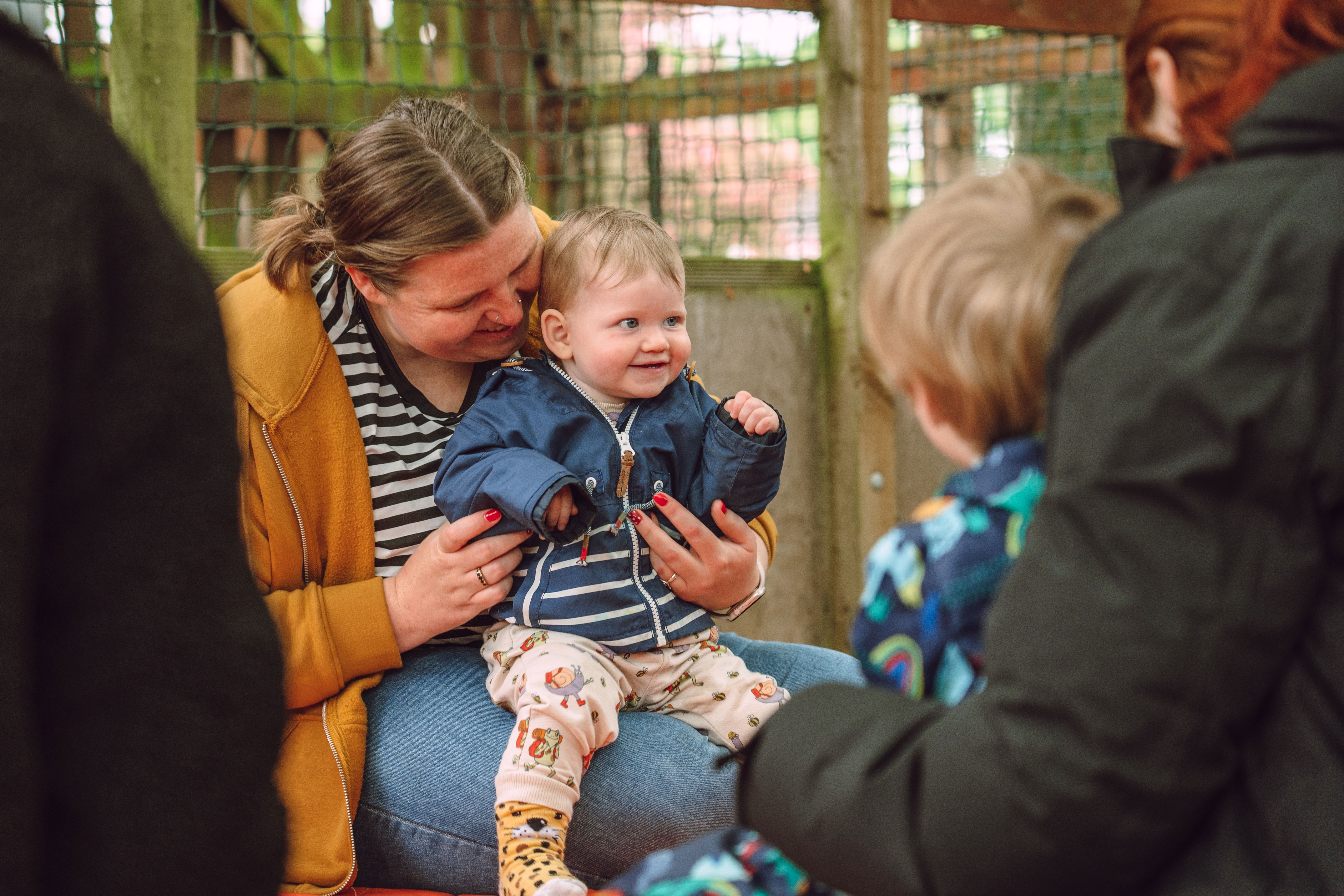 There are now over 500 children registered with Growing Minds. A variety of support is offered, based on families’ interests and needs, ranging from the Dolly Parton Imagination Library books that are posted free of charge to any family wanting to sign up, to Stay and Plays, groups and 1-to-1 sessions for parents and children. Stories shared by Growing Minds parents about their own experiences highlighted the value of this ‘progressive universalism’ approach. For some families, the initial contact about the Imagination Library books provides the first step into accessing other local services. As Sally Smith, Peeple CEO explained, the latest findings from the Learning Together Study show that the Peep Learning Together Programme improves outcomes for all children but has the greatest impact for those living in disadvantaged circumstances.
There are now over 500 children registered with Growing Minds. A variety of support is offered, based on families’ interests and needs, ranging from the Dolly Parton Imagination Library books that are posted free of charge to any family wanting to sign up, to Stay and Plays, groups and 1-to-1 sessions for parents and children. Stories shared by Growing Minds parents about their own experiences highlighted the value of this ‘progressive universalism’ approach. For some families, the initial contact about the Imagination Library books provides the first step into accessing other local services. As Sally Smith, Peeple CEO explained, the latest findings from the Learning Together Study show that the Peep Learning Together Programme improves outcomes for all children but has the greatest impact for those living in disadvantaged circumstances.
School and community links:
Katie Screaton, Executive Headteacher of John Henry Newman Academy, enthused us all with her passionate presentation on the impact that Growing Minds is having in Littlemore. Before it began, there was scarce community support for children under five in Littlemore, so it marks a significant transformation. She pointed out that Growing Minds is fostering a sense of community, diminishing isolation, and boosting parental confidence and enjoyment, helping more parents to see and value their role as educators.
Practitioners from the school and Growing Minds deliver a range of sessions with families, often combining topics from the Peep Learning Together Programme with a particular aspect of everyday life, all of which support children’s development and the home learning environment. Following conversations about cost of living issues, for example, the local St Mary and St Nicholas Church donated a number of slow cookers. These were given to families, who also attended a six-week course where parents and children had fun preparing dinner together (cowboy casserole, anyone?) then taking the food home to cook in their slow cooker.
Other groups include Nature Tots, a Special Educational Needs (SEN) parent support group, and Stay and Play sessions focusing on supporting school readiness. For the Growing Minds children who started in Reception this year (aged 4-5), Katie's initial observations were that they have all settled well, and are confident explorers of the Early Years Foundation Stage.
This is the first cohort of Growing Minds children to have started school. It’s exciting and we cannot wait to see the impact that Growing Minds has over the coming years, though we are cautious that this year group will have been most heavily affected by lockdowns and the lack of provision that was available during those periods. We are very fortunate to have such a community-focussed school on our doorstep, and we really appreciate the collaboration that has such a wide impact.
Impact stories from parents:
Gathering stories from families about their experiences is an important part of the project. Reading and discussing the stories in groups is always a popular part of the Learning Day. We pulled together common themes, which included the project being as meaningful for parents as it was for children, delivery being done with families not to them, reduced social isolation and easy-to-access support. Statutory services and professionals are stretched to the limit, often accompanied by long waiting lists, and finding an understanding and friendly face was always appreciated by families.
Below you can see a short version of one of the stories.
Local partnership work:
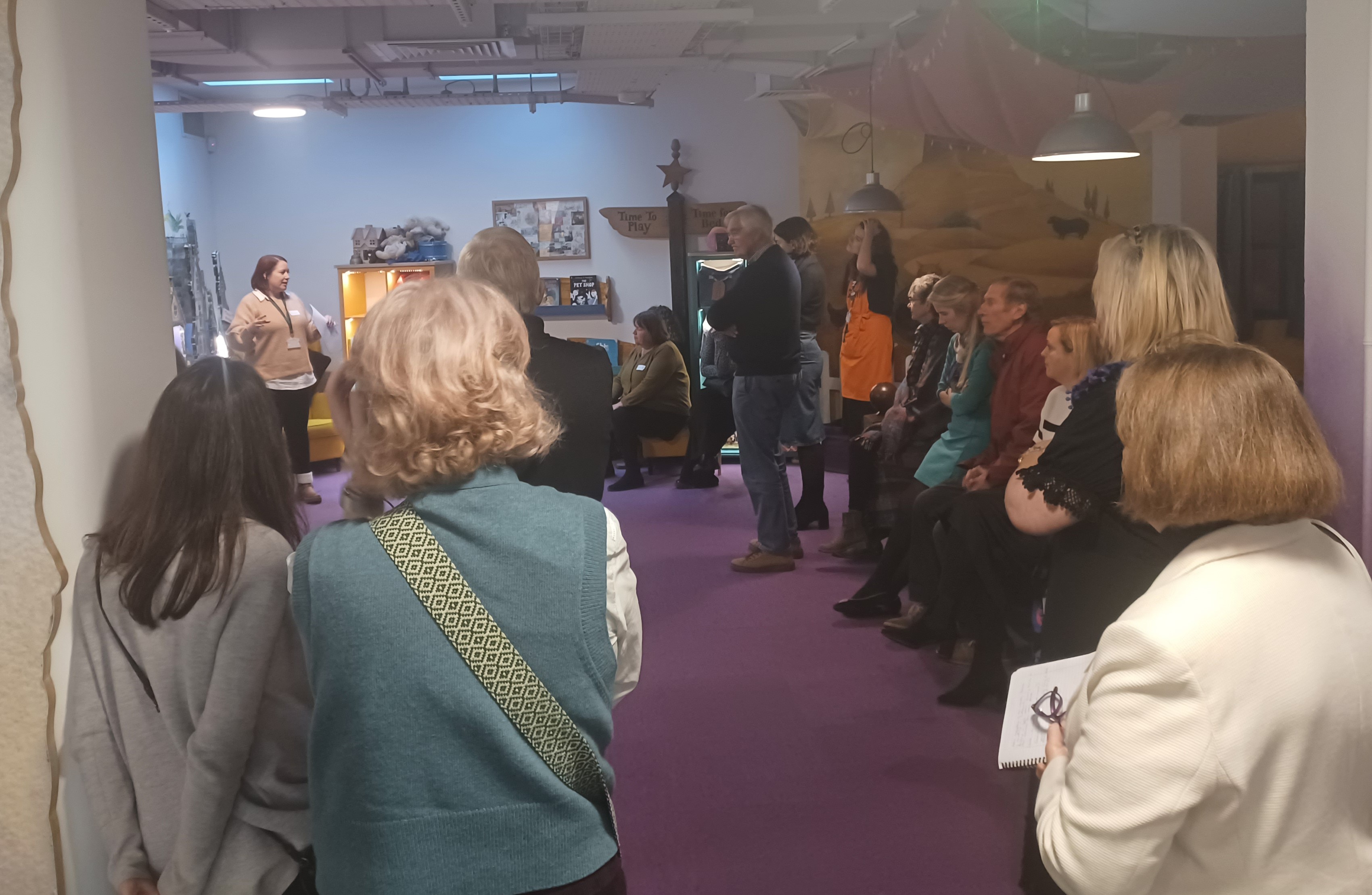 Staff from the The Story Museum took us into their small world area to deliver a section on their community outreach work with Growing Minds. After exploring the room, Victoria Jones, the Museum’s EYFS Co‑ordinator, gave us a captivating demonstration of their storytelling approach and the profound impact that it can have on people of all ages. Story Museum staff inspired families during a dozen Stay and Play sessions in Littlemore – our work shares numerous similarities, and it was a great opportunity to work together. Their sessions culminated in a visit by families to the Story Museum in early November, which went down a treat (and is well worth a visit!).
Staff from the The Story Museum took us into their small world area to deliver a section on their community outreach work with Growing Minds. After exploring the room, Victoria Jones, the Museum’s EYFS Co‑ordinator, gave us a captivating demonstration of their storytelling approach and the profound impact that it can have on people of all ages. Story Museum staff inspired families during a dozen Stay and Play sessions in Littlemore – our work shares numerous similarities, and it was a great opportunity to work together. Their sessions culminated in a visit by families to the Story Museum in early November, which went down a treat (and is well worth a visit!).
Lessons learned:
We reflected on what we had learned over the past few months, and our progress on the action plan from our independent evaluation. For example:
- We initially relied heavily on statutory services for recruitment or registrations of families. These referrals from birth registrars are very important as they allow families to hear about the local provision from very early in their child’s life. However, using a more mixed approach through social media, local advertising, schools, nurseries and other community groups means that our registration rate has significantly improved.
- Following feedback from families about the times of our Peep groups, we swapped the toddler group to the morning and babies to the afternoon, and attendance has improved.
- We piloted a community Transition group in the summer for Littlemore families whose children would be starting school outside the local area. This was less well attended than most of our groups, partly for logistical reasons – more than half those invited said they worked during the week. However, we’d also had less interaction with these families when children were younger, due to Covid. This really speaks to the power of the earliest contact with families, building relationships and being able to support them sensitively from when their babies are small. Families were still interested though, with several saying they would have found this type of course useful before starting nursery as well as school. We were still able to offer every family support, and an ideas mat of appropriate activities in preparation for school transition. We will reflect further on our learning in the design of these sessions later in this academic year.
Partnership working and future opportunities:
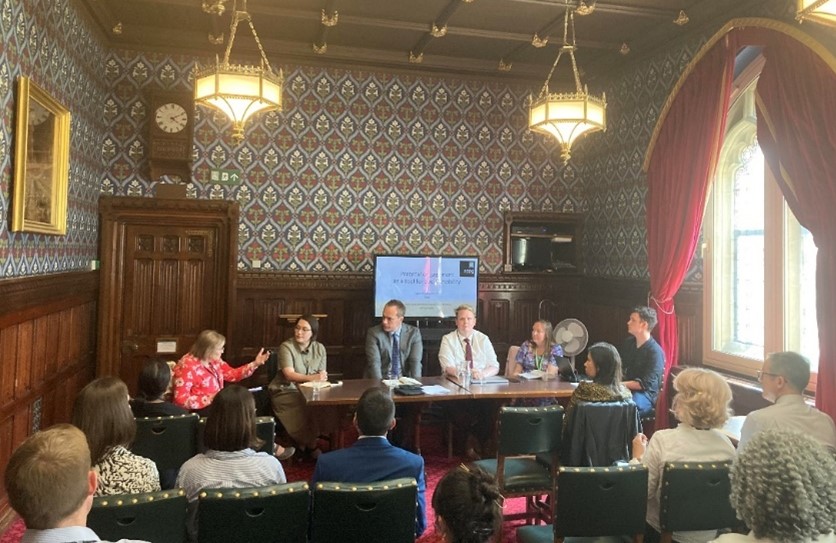 We were invited by the Sutton Trust to speak about Growing Minds at the Social Mobility All Party Parliamentary Group (APPG) at the House of Commons in July. The theme was parental engagement as a tool for social mobility, and it was an honour to share our learning around engaging with parents as early as possible in children’s lives.
We were invited by the Sutton Trust to speak about Growing Minds at the Social Mobility All Party Parliamentary Group (APPG) at the House of Commons in July. The theme was parental engagement as a tool for social mobility, and it was an honour to share our learning around engaging with parents as early as possible in children’s lives.- Talking and working with other organisations to learn from each other is an important part of Growing Minds, both locally and further afield. Over the past few months we’ve enjoyed collaborating with organisations such as Oxford Inclusive Economy Partnership (OIEP), Oxford University's Brain Story and Thrive at Five in Stoke-on-Trent.
What next? (how we can help you and you can help us)
We hope you agree that our services are valuable – but they need to be funded. We still need some funding for this financial year (2023/24) and the next. There are (as yet) no government-funded Family Hubs in Oxfordshire.
Do get in touch:
- if you are, or you have any contact with, a local commissioner of family support services or other potential funders (individuals, companies or charitable trusts), who may like to find out more about what we do, or to come along to our next event.
- if you’re a parent, carer or professional who lives or works in Littlemore or Berinsfield, and you want to find out more or come along to one of our sessions, or signpost other local families.
- if you’re part of a like-minded project elsewhere and would like to share ideas.
Becky Young, Growing Minds Manager - email becky.young@peeple.org.uk or tel 01865 395145
Parent story (short version):
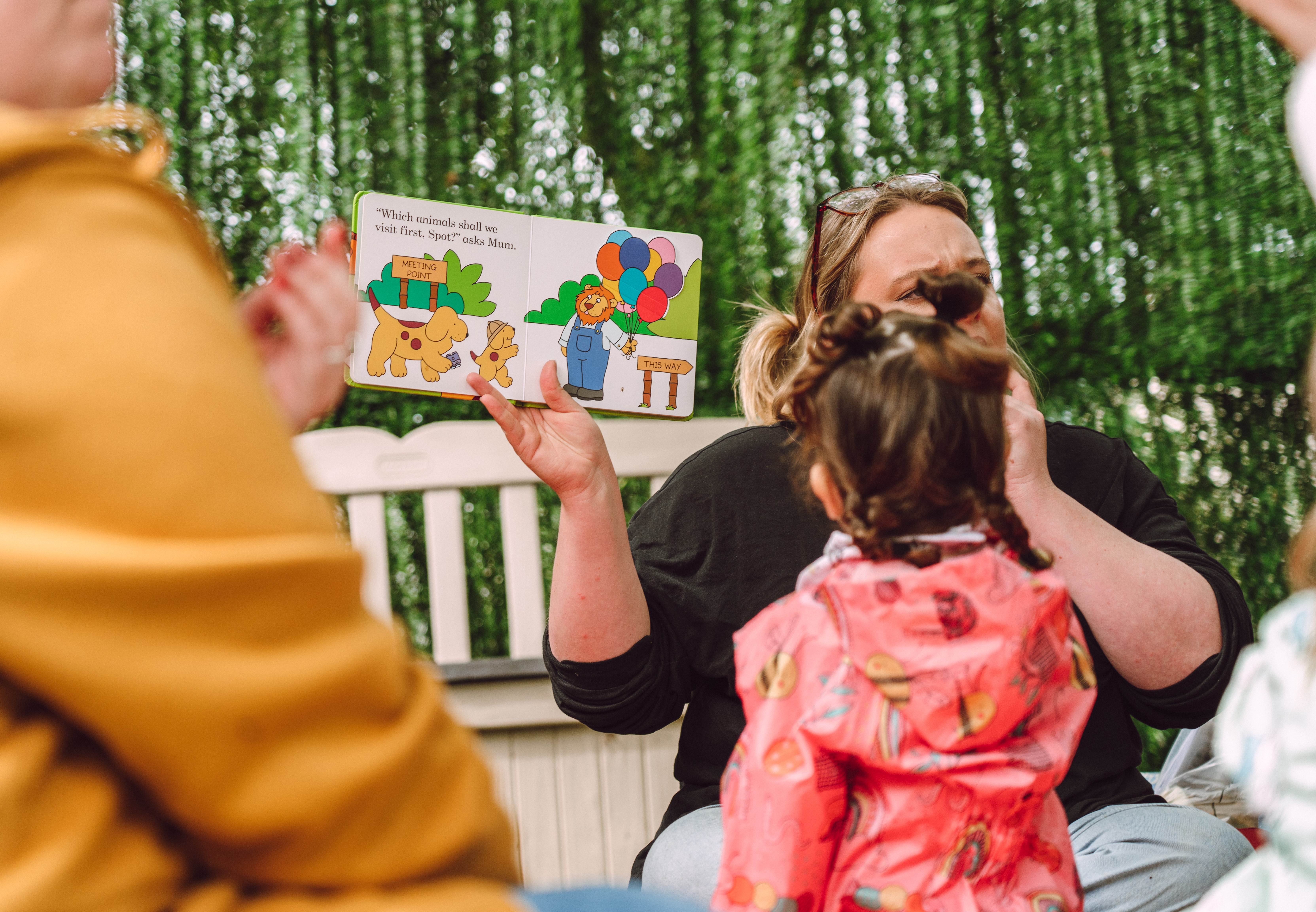 “I was a bit nervous the first time but everyone at Growing Minds and the Berin Centre was really welcoming. The first group I came to was a baby group. Each week is different, you learn so much and it's to improve your knowledge of certain things so you can enhance your child's life for the better. It was important for me to not just sit in the house with my little girl, it gets us out and interacting with people that we normally wouldn't be.
“I was a bit nervous the first time but everyone at Growing Minds and the Berin Centre was really welcoming. The first group I came to was a baby group. Each week is different, you learn so much and it's to improve your knowledge of certain things so you can enhance your child's life for the better. It was important for me to not just sit in the house with my little girl, it gets us out and interacting with people that we normally wouldn't be.
There's quite a lot of us who have similar ages of children, it's really good to see the same people every week, it helps us build the relationships. It's amazing, the other parents and their kids – it was really nice and friendly but if you're having a bad day like you can just tell someone and they'll try and help you. There won’t be any judgement which is really good because my life is chaos.
In the groups, we learn things to do with a child. There was something to do with the brain and I can see the image, that's really stuck with me. I'm quite a visual person so that really helped me. One week we also did about routines. I have difficulty with some of it and it was really reassuring that everyone goes through it which is a relief, and you can talk about it.
I also liked the making marks one that we did which was basically just like messy play. She didn't really get too dirty which was good for me, but she's done it since and she loves it, then I think oh I could do water play at home or I can do this at home - it's just fun.
This is somewhere that you're accepted and listened to. I just think how amazing spaces are like this. I've always wanted a child, I will do anything for her. I just want her to have the best life and coming here definitely helped that and it helps me as well. Parenting is hard, especially when social media says ‘do this’, ‘don't do this’ and it's so conflicting, you just want the best for you and your child. Mum guilt is so difficult but here they encourage you. I feel more connected with the other parents.”
"I just want her to have the best life and coming here definitely helped that and it helps me as well... Mum guilt is so difficult but here they encourage you. I feel more connected with the other parents.”
Read one parent's story below.
Find out more about getting involved with Growing Minds, as a parent, practitioner, commissioner or funder:
email becky.young@peeple.org.uk or tel 01865 395145

